My interview and selection of Five Books is online at The Browser
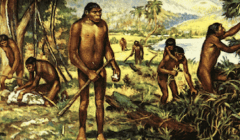
My interview and selection of Five Books is online at The Browser

A (loosely) political novel in which, through a series of accidents, a fashion model is elected president of an imaginary former Communist country
Download the pdf here
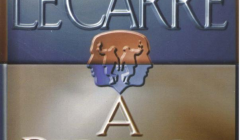
A Perfect Spy, by John Le Carré. Published by Knopf in 1986, now available in a Penguin reprint.
I read this book when it first came out and thought it a masterpiece. I re-read it recently with some trepidation, fearing I would be embarrassed by my earlier enthusiasm. I needn’t have worried: it remains a brilliant novel by any standards, and the character of Rick Pym, the protagonist’s father, is unforgettable.
Buy here.
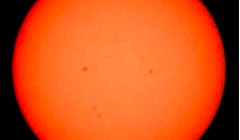
A transit of Venus took place in the early hours of Wednesday 6th June (CET)), beginning at 00.03.53 and ending at 06.55.24. There will not be another transit in our lifetimes.
 The photograph above was taken in Minneapolis (hat tip Wikipedia)
The photograph above was taken in Minneapolis (hat tip Wikipedia)
More details, including viewing techniques and locations, are available at the Transit of Venus Project, one of the activities of the excellent organization Astronomers Without Borders.
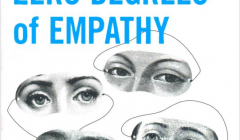
Zero Degrees of Empathy: A New theory of Human Cruelty, by Simon Baron-Cohen. Published April 2011 by Allen Lane.
A book that sets out to demystify cruelty, avoiding the label “evil” that explains nothing and merely satisfies our demand to express outrage. Provides a compelling account of the factors in the brain that determine when individuals will suffer from an empathy deficit, which at extreme levels may enable behavior of shocking cruelty. But the effects of empathy deficits may work themselves out in a variety of ways. In the book’s most novel and intriguing development, Baron-Cohen compares the kind of empathy deficit that leads to cruelty with the empathy deficits visible in the autistic spectrum, and which are not typically associated with anything of the kind. This measured, rigorous “compare and contrast” approach both acknowledges how much work remains to be done to understand empathy deficits and their consequences, and shows us how much better we can understand them using scientific methods.
Buy here.
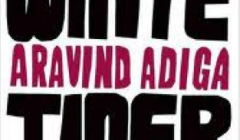
The White Tiger, by Aravind Adiga. Published in October 2008 by The Free Press.
A funny, sparky, dark novel of corruption in modern India. Brilliantly describes how the rich manage to maintain a vast servant class in an equilibrium of subjection. The author has been a business journalist, and this greatly enhances both the range of his reference and his understanding for the way perverse incentives lead to collectively terrible outcomes. But although this gives him unusual insight into economic forces, the book is not didactic: he is a superb storyteller, and the book has a rich seam of unsettling malice.
Buy here
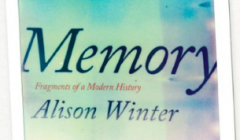
Memory: Fragments of a Modern History, by Alison Winter. Published 2012 by Chicago University Press.
A superb account of the way in which attitudes to the reliability of memory developed during the 20th century under the influence of developments in academic psychology, legal pressures for reliable forensic diagnostic techniques, and most recently the “Memory Wars” of the 1980s and 1990s about the status of “recovered” memories of childhood sexual abuse. Concludes with an intriguing analogy between psychopharmacological methods for maniuplating memory, and the way in which the ability to feel pain, once considered more or less definitive of subjective psyhological identity, came to be considered much more contingent once the science of anesthesia made it possible to undergo painless surgical procedures.
Buy here.
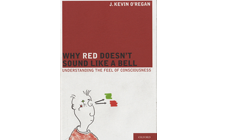
Why Red Doesn’t Sound Like a Bell: Understanding the Feel of Consciousness. By Kevin O’Regan. Published in June 2011 by Oxford University Press.
An account of the nature of consciousness based on recent discoveries in neuroscience, especially in the study of mechanisms of attention allocation. Makes a persuasive case that the subjective sensations generated by different sense modalities are grounded in the motor capacities we deploy for exploring the world. Contrary to a widespread illusion about sense perception, we do not experience the world as a simultaneous panorama; instead our brain fills in the many gaps in our sense perception because it can explore the external world to verify the hypotheses it makes when filling in. This is a very original and important contribution to the philosophical understanding of consciousness that undermines traditional claims about the incorrigibility of subjective experience; far from being incorrigible, subjective experience is frequently thoroughly deluded about its own nature. Buy here.
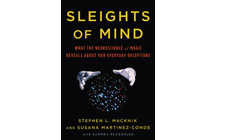
Sleights of Mind: What the Neuroscience of Magic Reveals About our Everyday Deceptions. By Stephen L. Macknik, Susana Martinez Conde and Sandra Blakeslee. Published in November 2011 by Picador.
A tour by two leading neuroscientists and a fine science journalist of the many ways in which professional magicians exploit the known weaknesses in our mechanisms of allocating attention. Buy here.
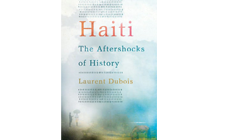
Haiti: The Aftershocks of History. By Laurent Dubois. Published in January 2012 by Metropolitan Books.
A remarkable history of Haiti since the revolution and independence. Excellently written, largely structured as narrative but with valuable discussions of many aspects of Haitian culture, economics and society; an eye-opener in its accounts of the many ways outsiders have used and imagined the country for their own purposes. A biography fully worthy of its subject, a troubled but remarkable country. Buy here.